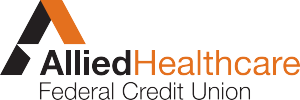
Financial Wellness Checklist
Financial health is an essential aspect of our lives that is often overlooked. It’s easy to get caught up in the day-to-day demands of our jobs, our families and our other responsibilities and—let’s face it—finances and money issues are infrequently fun and are the last thing we want to do with our free time. However, we must also make the effort to ensure that our financial health is in good shape. Allied Healthcare Federal Credit Union is committed to our members’ financial healthcare for life and there’s no better prescription than steady, simple financial wellness activities. With that in mind, here are some financial health tips to help you take control of your finances and achieve your financial goals.
- Create a budget: A budget is a plan that helps you manage your finances by tracking your income and expenses. It is essential to create a budget that reflects your current financial situation, including your income, expenses, debts, and savings. By creating a budget, you know where you stand and can prioritize your expenses and identify areas where you can cut back.
- Start an emergency fund: Only about 50% of Americans have any money set aside for rainy days. An emergency fund is there to cover unexpected expenses or financial emergencies. It is recommended to have at least three to six months of living expenses saved in your emergency fund. This fund can help you avoid going into debt or tapping into your long-term savings in case of an emergency.
- Pay off high-interest debt: High-interest debt, such as credit card debt, can be a significant obstacle to achieving financial health. It’s crucial to pay off high-interest debt as soon as possible to avoid paying more in interest charges. Consider consolidating your debt with a home equity line of creditor a personal loan that allows you to take out a low-interest loan to pay off your high-interest debt, a savvy financial move.
- Save for retirement: Saving for retirement is essential to achieving long-term financial health. It’s never too early or too late to start saving for retirement. Consider contributing to a 401(k) or IRA account, and if possible, contribute enough to receive your employer’s matching contribution.
- Invest wisely: Investing can help you build long-term wealth, but it’s crucial to invest prudently. It’s essential to diversify your investments and choose investments that match your risk tolerance and investment goals. Consider working with a financial advisor to help you make informed investment decisions.
- Live below your means: Living below your means means spending less than you earn. This can help you avoid going into debt and build your savings. Consider cutting back on unnecessary expenses, such as eating out, buying new clothes, or upgrading your phone, and focus on the things that bring you long-term value.
- Track your spending: Tracking your spending can help you identify areas where you can cut back and save money. Consider using a budgeting app or spreadsheet to track your expenses and identify areas where you can make adjustments.
- Review your insurance coverage: Insurance can help protect you from unexpected financial losses. It’s essential to review your insurance coverage regularly to ensure that you have adequate coverage for your needs. Consider reviewing your health insurance, life insurance, disability insurance, and homeowner’s or renter’s insurance.
Achieving financial health requires discipline, planning, and commitment. But you’re not alone. Allied provides free, private counseling, debt management services and financial educations tools to all members and we’re always just a phone call away. Remember, financial health is a journey, not a destination. Keep learning, adapting, and adjusting your financial plan as needed to achieve long-term financial health.



